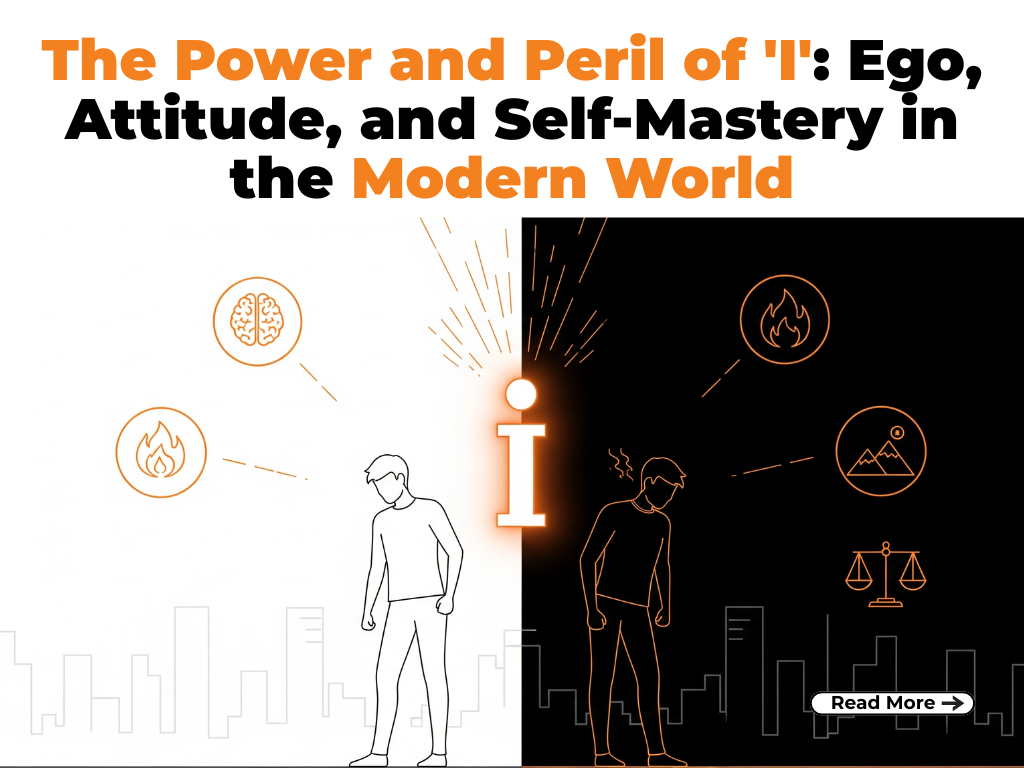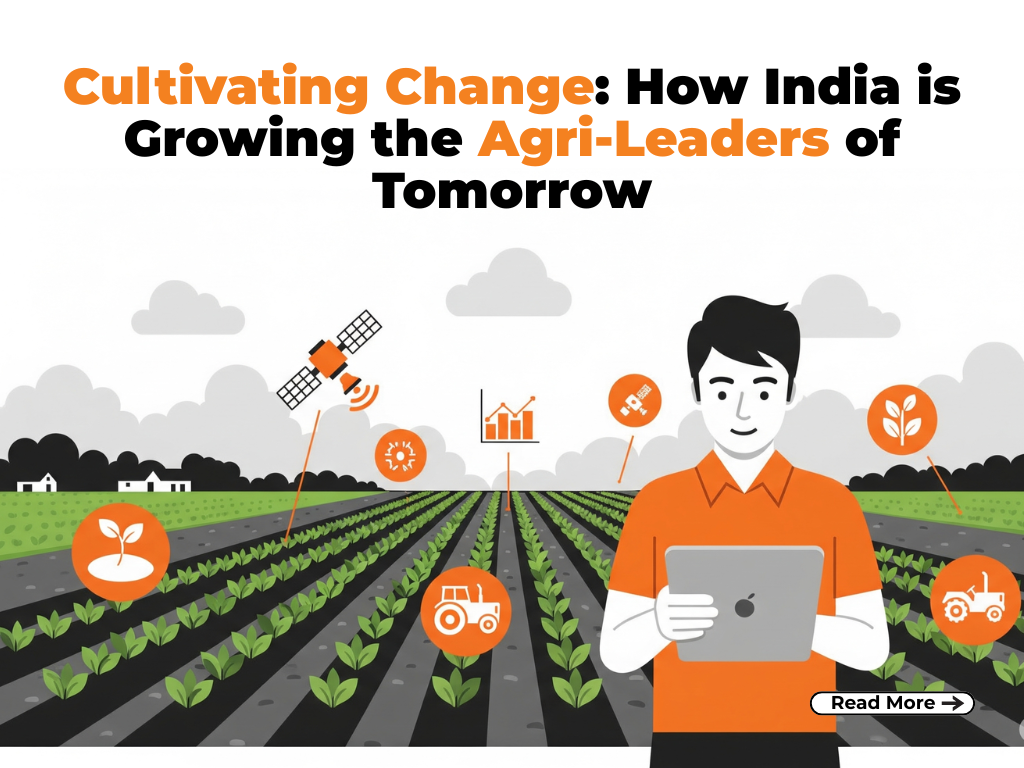The power and peril of self-identity is encapsulated in one simple letter: If you ever consider the most powerful letter of the English alphabet, which do you immediately think of?
For some, it’s the letter “I.” It’s not only a pronoun; it’s an icon for identity and aspiration. Sometimes, it symbolizes the ego that defines our existence. In a society where we glorify self and individuality, the big “I” rises to great heights, sometimes too great.
This blog discusses how “I” is constructed and destroyed, relying on psychology, world statistics, and eternal wisdom to demonstrate why becoming a master of your “I” is the secret to personal and professional success.

The Capital “I”: More Than Just a Letter
The duality of power is deeply embedded in the English language—nowhere more evident than in the solitary, capitalized “I.“ Each time we capitalize “I,” we are making an assertion about ourselves, what we value, and our understanding of the world. “I” is the sole pronoun in English that is always capitalized. This peculiarity calls attention to how central the self is in Western civilization. According to language specialists, this capitalization sets English apart from most languages, where the first-person singular does not get similar emphasis.
But what does this do for our behaviours and attitudes? The capital “I” can be confidence, healthy ambition, and self-respect. Or it can mutate into egoism, aggression, and a sense of entitlement if not kept in check.
Ego vs. Confidence: Walking the Tightrope
“Talent is God given. Be humble. Fame is man-given. Be grateful. Conceit is self-given. Be careful.”
—John Wooden
This quote from legendary basketball coach John Wooden highlights the balance between self-worth and self-importance. Humility and gratitude are widely seen as virtues, while unchecked ego is often viewed as a flaw. What’s more, the duality of power can turn ambition into arrogance when ego overrides empathy or purpose.
The Science Behind Ego
The power and peril of unchecked ego is now backed by scientific research. Psychological research indicates that having a moderate level of self-esteem is crucial for good mental health and achievement. According to research, though, the studies also suggest that narcissism, which is an exaggerated feeling of self-importance, has been on the increase, especially in the younger generations. A meta-analysis by Psychological Science revealed that narcissism among students at the American colleges has risen by 30% in the last three decades. This “epidemic of narcissism,” as it has been called by some, is linked with increased prevalence of anxiety, depression, and relationship conflicts.

Analogy: Ego as Salt
The duality of power is perfectly captured in this analogy: ego is like salt. Consider ego to be like salt in a recipe. A pinch adds depth and integrity, but an excess makes the dish ruined. The right dosage of “I” provides us enough courage to pursue our aspirations and articulate our requirements. However, too much ego becomes toxic, revealing the power and peril of ego in how it damages relationships and repels collaboration.
When “I” Turns Toxic: The Career Cost of Ego
The power and peril of leadership is often tested when ego steps into the boardroom. In the professional environment, the dangers of having an inflated sense of self are familiar:
- A Harvard Business Review study revealed that groups with at least one highly egotistical member are 25% less productive and experience 40% more interpersonal conflict than groups with more well-rounded personalities.
- A Gallup survey indicated that workers who see their leaders as self-centered are 50% less engaged and twice more likely to quit the organization.

Having “a chip on the shoulder”, can stop your career progression. Ego-based decisions usually result in poor collaboration, opportunities lost to learn, and, eventually, career stagnation.
The Blame Game: Why We Give Others Power Over Our Emotions
The power and peril of emotional control lies in who holds the remote.Why do we allow some individuals or situations to bother us? Neuroscience suggests that our brains are wired to react to perceived threats—social or otherwise—with fight-or-flight responses. But reserving space for others to dictate our happiness or anger is something we learn and not something we are born with. In the middle of this habit sits the duality of power—whether we act from inner clarity or react based on external noise.
The Expectation Trap
A Stanford psychologist’s study, Dr. Carol Dweck, discovered that individuals who attribute their happiness to outside sources like people’s words or actions would soon feel disappointed and unsatisfied. Conversely, those with an internal locus of control, who think they are controlling their own emotions, say they feel happier and more resilient. This shows how the power and peril of dependence can quietly control how we feel—without our even knowing it.
Analogy:
Envision your feelings as the remote control for your happiness. If you hand over this remote to someone else, you allow them to switch the channel at their discretion. Why not have the remote in your own possession?
The Wisdom of Letting Go: Expectations and Reality
“It would be useful to remember that people will give what they have, not what we want.”
This concept is supported by findings on expectations and happiness. As stated in the 2023 World Happiness Report, unmet expectations rank among the primary causes of unhappiness worldwide. The report shows that individuals who set achievable expectations and aim to be grateful for what they have always record higher in measures of well-being. So, learning to release ego-driven assumptions can minimize the power and peril of disappointment.
Some Cause Happiness Wherever They Go…
Oscar Wilde famously quipped, “Some cause happiness wherever they go; others whenever they go.” This witty observation is supported by science. Good moods not only brighten our own day, but also influence the people around us. Researchers at the University of California, Riverside, found that positivity is “contagious,” spreading via social networks up to three degrees removed. This ripple effect highlights the duality of power that exists in emotional contagion—whether you spread light or gloom is your choice.
The Power of Mindset: It’s What We Think About
“It isn’t what we have, or who we are, or where we are, or what we are doing that makes us happy or unhappy. It is what we think about.”

This concept is central to contemporary psychology. Dr. Martin Seligman, the founder of positive psychology, is convinced that our minds—rather than our circumstances—determine how happy we are. Cognitive-behavioural therapy (CBT), one of the most successful treatments for depression and anxiety, is predicated on the notion that what we think determines the way we feel and behave.
Practical Steps: Mastering Your “I” in the Real World
So, how do we keep the “I” in check, ensuring it empowers rather than sabotages us?
1.Practice Self-Awareness:
Regularly reflect on your motivations. Are you acting out of confidence or ego? Journaling or mindfulness meditation can help you see the difference.
- Seek Feedback:
Invite honest feedback from trusted friends or colleagues. Research shows that people who actively seek feedback are 39% more likely to get promoted. - Cultivate Gratitude:
Keep a gratitude journal. Studies show that writing down three things you’re grateful for each day can improve happiness by 25% in just 10 weeks. - Set Boundaries:
Learn to say no without feeling guilty. Healthy boundaries protect your time and energy, allowing your “I” to thrive without stepping on others. - Celebrate Others:
Shift the spotlight now and then. Recognizing the achievements of others builds goodwill and helps keep your ego in check.
Conclusion: The Choice Is Ours

In the end, the letter “I” is powerful, but it’s up to us how we use it. By embracing humility, managing expectations, and taking responsibility for our emotions, we can change the capital “I” from a symbol of ego to one of empowerment. As the world becomes more connected and competitive, mastering ourselves is not just a personal victory; it’s the foundation of lasting happiness and success.
References
1: Oxford English Dictionary, “Why is ‘I’ always capitalized?”
: Twenge, J. M., & Campbell, W. K. (2009). The Narcissism Epidemic: Living in the Age of Entitlement.
: Harvard Business Review, “The Hidden Dangers of Ego in the Workplace,” 2022.
: Gallup, “The State of the American Manager,” 2023.
: Dweck, C. S. (2006). Mindset: The New Psychology of Success.
: World Happiness Report 2023.
: Fowler, J. H., & Christakis, N. A. (2008). “Dynamic spread of happiness in a large social network: longitudinal analysis over 20 years in the Framingham Heart Study.” BMJ.
: Seligman, M. E. P. (2002). Authentic Happiness.
: Zenger/Folkman, “Feedback: The Powerful Paradox,” 2021.
: Emmons, R. A., & McCullough, M. E. (2003). “Counting blessings versus burdens: An experimental investigation of gratitude and subjective well-being in daily life.” Journal of Personality and Social Psychology.














